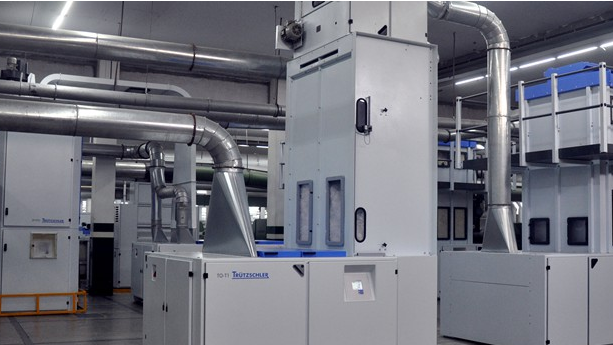5.1 Million Cotton Bales Worth ‘Rs 200 Billion’ Lost, Claims PCGA
Chairman of PCGA Nawab Shehzad Ali Khan said that Pakistan had lost 5.1 million bales of cotton worth Rs 200 billion during 2016 which was irreparable loss to country’s economy. Consequently, thousands of farmers in cotton belt bankrupted and they are unable to repay their loans to banks as well as dealers of pesticides, fertilisers and seeds.
The government could not realise the taxes from ginning sector according to its targets. The quality of “Binola” (cotton seed)was also affected. Consequently, the ratio of oil could not be maintained. He said that Federal Finance Minister Ishaq Dar listened their problems patiently and asked the then Chief Minister RTO Multan Hafiz Jamil Ahmed Owaisi to send his recommendations regarding oil-recovery ratio and judicious taxation so that SRO-188 could be amended.
He stressed the need for minimising trust deficit between the Federal Board of Revenue (FBR) and taxpayers. Shehzad Ali Khan said that tax managers/collectors should fight corruption through a transparent accountability process. The FBR needs to adopt more circumspective approach in improving revenues for the government which will ease pressure on already stretched revenue resources. Chief Commissioner of RTO Multan Khawaja Salim Raza Aasif assured that he would submit proposals for reduction in taxation for ginning industry, exemption in some cases in the next meeting of Chief Commissioners and he would try his utmost to come up to the expectations of the ginning industry.
Delivering his speech at a reception hosted by Pakistan Cotton Ginners Association (PCGA) in his honour and the outgoing Chief Commissioner Hafiz Jamail Ahmed Owaisi, he said the tax system is based on tax policy and tax administration and is central to fiscal policy. He suggested four simple cannons to tax the economy; persons should pay according to their ability; the tax should be certain and clear to everybody concerned; the convenience of the contributor should be studied regarding payment; and the cost of collection should be small relative to the yield.
He said, “Taxes, after all, are the dues that we pay for the privileges of membership in an organised society.”.
Private consumption, investments and equitable distribution of wealth are some other objectives that taxes can help achieve. Sadly speaking, the current tax-to-GDP ratio has been languishing below 10 percent since long. India has improved its ratio which has reached 16.4 percent, China 14.9 percent, Sri Lanka 14.8 percent and Bangladesh having the lowest of all at 8.1 percent. Taxes should be equitable in the sense that the heaviest burden should fall more on the rich and incidence of evasion and avoidance is at the minimum. This is only possible when the economy has a more built-in capacity which means contribution of direct taxes (progressive or proportional) should be greater than indirect taxes (regressive).
THe reception was also attended by Chief Commissioner RTO Bahawalpur Ghazanfar Hussain, Commissioners Inland revenue Abid Raza Bodla, Zubair Bilal, Yasir Ali, Additional Commissioners Naveed Ahmed, Bahadur Ali Shah, Deputy Commissioners Muhammad Masud, Nadeem Ahmed, Abid Hussain Gulshan, Abid Rasul Khan, Kaswar Hussain, Dr SAthar Ishaq, Akhtar Sooraj, Cost Accountant MuhammadAslam , Staff officer Imran Pervez, Chairman of Anjuman Tajiran Khawaja Muhammad Shafiq, Chairman of APBUMA Syed Muhammad Aasim Shah, Group Chairman Haji Muhammad Akram, Former Chairman Aman-ullah Qureshi, Mukhtar Ahmed Khan Baloch,Sheikh Muhammad Saeed, Vice Chairman Sarfraz Nazim Awan, Khalid Hanif Lodhi, Chaudhry Waheed Arshad also participated.
We buy and sell textile machinery

Leave a Reply
You must be logged in to post a comment.